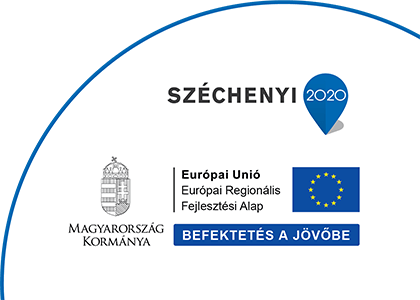
MAIN UNITS
Ide még várunk tartalmat
The Institute of Apiculture functioning in the frame of KÁTKI managed to regain its rank and name as an institute in 2010, when KÁTKI was reorganized. Therefore, an outlined historic review of KÁTKI cannot be complete without a thorough description of this institution of international reputation. Its predecessor, the State Bee-Farm /State Apiary was established in 1899 on the initiatives of Ignác Darányi, Minister of Agriculture. There have been some 18 000 melliferous/nectar-bearing/(honey-bearing) trees and shrubs planted until 1902. The buildings raised in the nearly 30 ha large apicultural park aimed at researches to develop Hungarian apiculture and the training of apiarists. The initial Bee-Farm /Apiary was organized by Antal Kovács, national supervisor of apiculture. In 1942, with the leadership of dr. Zoltán Örösi Pál, the Institute of Apiculture and Bee Biology was founded. This was the time when the main building was enlarged and new laboratories were set up. In 1950 the Department of Bee-farming was run in the frame of the Research Institute of Animal Husbandry, while in 1952 it was part of the Institute for Small Animal Research. dr. Zoltán Örösi Pál has managed the researches made in the institute for 30 years. Thanks to the management of the institute, and personally dr. Zoltán Örösi Pál, the institute has achieved recognition all over Europe by the middle of the 2th century.
Researches and technological improvements started in the second half of the century aiming to spread Pannonic/Pannonian Bee, a national variety of the honey-bee (Apis mellifera). Elaboration of a code for the conservation of the breed as well as the introduction of testing breed characteristics/(traits) is the merit of Jenő Suhajda and Enikő Szalainé Mátray. This work is especially appreciated nowadays, hence as a result of the free trade of various breeds and hybrids hardly any similar example can be found in Europe. The declaration of Pannonic bee as an indigenous breed is under way.
The Institute of Apiculture functioning as an independent department of KÁTKI and dating back to more than 110 years was built in a fairy environment, next to the Arboretum of Gödöllő. The Apicultural Park belonging to it, along with the Museum of Apiculture unique in Hungary are open to the public all year round and represent attractive sights in Gödöllő not only for the apiarists.
The most important, long-term objective of scientific strategy of Department for Gene Conservation Science and Small Animal Research is research, development and innovation related to local, Hungarian farm animal breed protection (poultry, rabbit, fish and honey bee), gene conservation and gene bank activities. Priority is given to basic and applied research and development regarding to in vivo gene bank stocks, as well as in vitro gene conservation and small animal breeding. Outstanding tasks are the examination of the utilization possibilities of the gene bank stocks (‘Hungaricum’ products; village programs; sustainable, ecological farming, etc.), as well as research for searching of Hungarian local farm animal species or subspecies and the creation of new gene bank stocks.
More tasks are basic biological researches (genetics, reproductive biology, physiology) carried out in the above fields, and applied research on animal husbandry and feeding related to environmentally friendly and ecologically oriented agriculture, as well as comparisons with commercial lines
These tasks are carried out by the Genetics, Reproductive Biology, Gonadal Tissue Transplantation, Embryonic Stem Cells, Nutrition working groups.
List of detailed activities:
- Development, maintenance and registration of international relations belonging to the department’s field of expertise.
- Maintenance and development of the In vitro Farm Animal Gene Bank.
- Development of in vitro storage of genetic material of indigenous domestic animal species and breeds.
- Establishing domestic and international research relations with universities, research institutes, breeders, directorates of national parks and professional organizations.
- Basic and applied researches and experimental developments aimed at the characterization, utilization and involvement of gene bank stocks into production, as well as creation of ‘Hungaricum’ products, development and application of GMO-free feeds.
- Research activities aimed at the finding, description and utilization of Hungarian local domestic animal breeds and the creation of new gene bank stocks, including field studies in the Carpathian Basin and in the framework of other international collaborations.
- Cooperation with the national park directorates in species conservation programs for protected and endangered species.
- Investigations on preventing the negative effects of climate change, involving our native species.
- Publication of the achieved results at domestic and international conferences, scientific journals and various professional forums.
The most important long-term strategical objective of the Department of Aquatic Genetic Resources Conservation is the conservation of declining or endangered native fish species such as Tench (Tinca tinca, Linnaeus, 1758) and Crucian carp (Carassius carssius, Linnaeus, 1758) with the establishment of ex-situ in-vitro and in-vivo gene banks. Our second strategical objective is the development of a knowledge base on the genetic diversity of the natural populations and gene bank stocks of the above mentioned species. In addition to this, coordination of the operation and maintenance of the fish pond system in the NBGK’s asset management, maintaining contact with tenants and specialized authorities in accordance with regulations.
Duties of the department also include:
- Maintenance and development the Institute’s Tench and Crucian carp ex-situ in-vivo and in-vitro gene banks
- The inclusion of other endangered native fish species in the NBGK-HGI ex-situ in-vivo and in-vitro gene banks
- Research and educational activities related to endangered fish species, gene conservation, gene banking and breeding activities for the preservation of aquatic genetic resources
- Operation of the RAS (Recirculating Aquaculture System, hatchery and fish rearing units) of the Institute
- Operation of fish rearing units with net cages and pond in pond systems
- Reconstruction, maintenance, development and utilization of fish ponds under the management of the NBGK for gene conservation purposes
- Establishment of domestic and international relations with universities, research institutes, breeders, national parks, professional organizations and other stakeholders
- Publication of the achieved results at domestic and international conferences, in professional journals, and at various professional forums
- Identification, preparation and implementation of national and international projects connected to the objectives of the Department
